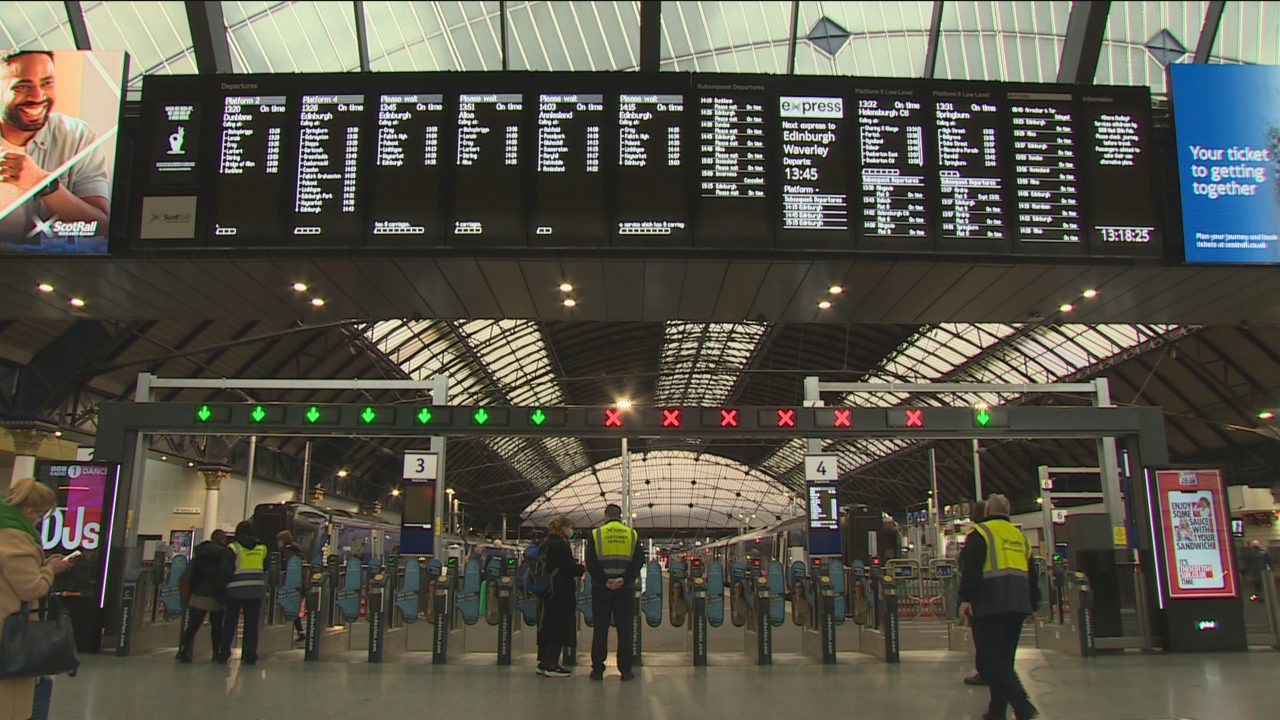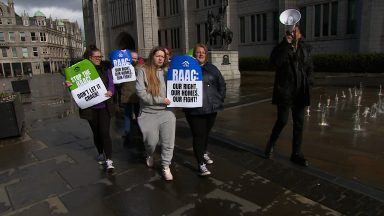When society reopened from the seemingly interminable Covid lockdowns, the prospect of travel during the summer months was one of the major reasons to be cheerful.
Flights were booked, train journeys arranged, package holidays paid for and a sense that the misery of the last two-and-a-half years could finally be binned.
Covid doesn’t dominate the news agenda now. Instead, we see the mix of despair and anger as holidays are cancelled while families wait at departure gates full of excitement.
Flights are cancelled with little notice and airlines look to axe more flights as airports, facing their own staff shortages, are forced to limit capacity.
And this week, the rail network will grind to a halt. Overseas visitors who wanted to see the UK by rail will have their holiday ruined.
Many commuters will simply not make work. And the travel chaos will have an acute economic impact as hotel reservations are cancelled and the beleaguered hospitality sector takes yet another cruel hit after being hammered these last two-and-a-bit years.
Will governments intervene?
The attitude of the Scottish and UK governments to the chaos on the railways has been to watch at a distance. In a sense, this is inevitable.
If ministers are to intervene to broker settlements, they can only do it once. Moving too early and failing to solve a dispute would render them impotent. Government intervention in the normal industrial relations process has always got to be a strategy of last resort.
Transport is the necessary infrastructure to economic activity. With inflation at 9%, interest rates on the rise, energy bills rocketing and warnings of a recession, a prolonged dispute is yet another issue to further deepen economic woes.
Already a 1970s scenario is playing out in the politics of the rail dispute. Grant Shapps, the UK transport secretary, attempts to hang union militancy around the neck of the Labour leader Sir Keir Starmer, (shades of Ted Heath blaming Harold Wilson for strikes in the early 1970s).
Sir Keir accuses the Tories of seeing the strikes as a welcome distraction to Boris Johnson’s woes. (Shades of Harold Wilson telling Heath he “needed the miners” strike to focus attention on the phoney issue of who governs Britain. No-one governs Britain, that’s why we are in such a shambles).
‘Are unions being militant?’
The public don’t really care about the political ping pong, the blame game, and the obvious attempts to extract political capital from the perceived shortcomings of opponents. What they care about is being able to travel where and when they want.
So, is there any truth in the charge of union militancy? I think not. Despite the fact there are echoes of the 1970s in a lot of the current ferment, they are worlds apart.
Back then, the TUC and CBI were organisations that regarded one another with suspicion. But on issues such as Brexit, support for firms and the cost-of-living crisis, they substantially sing from a similar hymn sheet. The days when the workers and the bosses were permanently at war have long since gone.
The ‘militancy’ is born of frustration, which in turn is born of anger that, despite working hard, life continues to be a struggle for too many households.
How will it end?
Forget the headlines about highly paid train drivers. It misses the point. Most union members earn nothing like the comfortable salaries quoted. They look to their trade union to help them with the cost-of-living crisis.
Disputes tend to play out to a template. The employer side will couch statements in reasonableness. Union leaders will talk of the anger of their members and point to real terms cuts to living standards. For a while, the rhetoric will become one of restrained anger. Negotiations will stall and even break down. A blame game of sorts will play out.
The truth behind this choreography is that most employers know how far they will have to go to settle a dispute and most union leaders know how far they can push before the demand becomes unsustainable in financial terms for the employer.
Details matter because pay is often just one variable in the equation. The media rarely report the nuance of negotiations as most reportage is in the primary colours of an industrial battle.
The nightmare for the union side in any negotiation occurs when they believe they have negotiated as far as they can and (privately) concede that the employer has gone as far as they can. If their members say no to any deal, they have no option but to seek more.
For an employer, the strategic question in negotiations is often to come up with a final figure but negotiate it in increments in order to be seen to be giving ground and allowing the unions to point to progress.
Often, in order to stall a protracted negotiation punctuated by days of industrial action, the employer will make a one-time best offer in the hope it avoids prolonged disruption. If that is rejected, they have nowhere to go in negotiating terms.
It is high inflation that in part is fuelling the high wage demands. Controlling inflation should have the longer-term consequence of tempering the scale of pay claims. The problem though is that 80 per cent of what is fuelling UK inflation is an increase in prices for imported commodities, all out-with the control of the government and the Bank of England.
This summer and winter will be tough, but if inflation does not materially come down in 2023 then I fear the chaos of the summer of 2022 might become a new norm.
A vicious circle of inflation fuelling high wage demands fuelling even higher inflation could play out in a way that really would be a return to the 1970s.
Follow STV News on WhatsApp
Scan the QR code on your mobile device for all the latest news from around the country
























